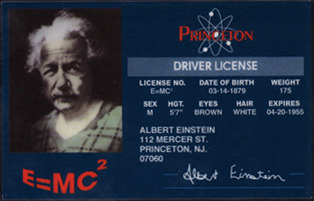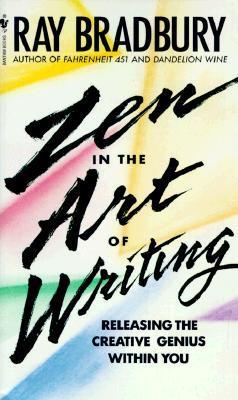Raj Shankar's Blog, page 42
August 13, 2013
Vedantic Wednesday: What is desire?
The way desire is understood today is misleading. Desire – refers primarily to something that we do not have but  which we would like to have. This feeling of ‘lack of’ is actually desires. Ask most people and they will disagree that their desires are a result of the feeling mentioned above – ‘lack of’ , but this is the essential truth. What does Vedanta have to say about desires?
which we would like to have. This feeling of ‘lack of’ is actually desires. Ask most people and they will disagree that their desires are a result of the feeling mentioned above – ‘lack of’ , but this is the essential truth. What does Vedanta have to say about desires?
Vedanta does not qualify desires as good or bad. It provides a detailed explanation of what desires are, where they arise from and how they can play havoc if not utilized well. Vedanta declares that the very birth of a human being is for the fulfillment of ‘yet to be satisfied’ desires. So desires are a subject of contemplation for every human being. The reason why only human beings are singled out here is because of the thinking faculty bestowed upon them.
Desires have very important positive benefits as well as downside. Vedanta categorically states that every individual has to reflect on the process of desiring and understand the futility of desires and desiring for themselves. No amount of talks, books, seminars, counselling etc will help beyond a limit. The only benefit of all of these is the constant reminder to go back and reflect on desires and desiring. It is our own responsibility to find what our desires are, why are we desiring them, once we set our hearts and mind on them what happens to us and more importantly once a desire is fulfilled, what happens afterwards?
Once you start the thinking process in these lines, you will come to a conclusion on what you actually need to do with your desires. So go ahead find them out for yourself – for that is the only way!


August 12, 2013
But why did Einstein Employ a Driver?
The answer seems obvious, isn’t it? Why does anyone employ a driver? It is because we find driving stressful,  we don’t like driving or in some cases it is just a lifestyle requirement. But my guess is Einstein could have had a different reason for employing his driver. In my humble opinion Einstein employed his driver because he had better things to do with his mind then focus on driving the car around the city. Einstein employed his driver because he valued what he was attempting to do. Einstein employed his driver because he wanted to do ONLY what he was set to do. Doing anything else to him was a waste of time.
we don’t like driving or in some cases it is just a lifestyle requirement. But my guess is Einstein could have had a different reason for employing his driver. In my humble opinion Einstein employed his driver because he had better things to do with his mind then focus on driving the car around the city. Einstein employed his driver because he valued what he was attempting to do. Einstein employed his driver because he wanted to do ONLY what he was set to do. Doing anything else to him was a waste of time.
We see many of people, especially entrepreneurs try and do many things by themselves under the name of bootstrapping, cost cut, scarce resource availability etc. You can often hear many strut that they do most of the work from design, to marketing through HR and administration themselves. And it is the same set of people who wonder why despite all their efforts they are not seeing results. If your strength is in design, the more time you focus on it – better will the output be. If your strength is in sales – you might as well do only that while leave the rest to someone else. This focus on what you are set out to do coupled with the ability to hive off in your value-chain all other activities to more appropriately competent resources is a strategy that has worked more number of times than failed. So to be successful, you need to understand what your contribution to the cause is, value the contribution, create a team and an ecosystem that will enable, facilitate and add to the cause by doing all other things.
And to do this – the conviction and belief in what you are creating as value, by doing what you are good at is the key. If Einstein was to doubt if solving the puzzles that science posed to him was of little use – he would definitely have been driving his own car. Right?


August 11, 2013
Even Einstein Needed a Driver
Nothing in the world gets done by itself, even if it may seem at times as possible. The coconut tree stands seemingly  without any support growing to several hundred feet in height. But without the earth, the various beings inside the earth and the sun – can it stand like that even for a minute? While the contribution of the earth towards the tree standing may seem passive, it cannot be denied.
without any support growing to several hundred feet in height. But without the earth, the various beings inside the earth and the sun – can it stand like that even for a minute? While the contribution of the earth towards the tree standing may seem passive, it cannot be denied.
Even the most creative people need a good supporting system to create art. A choreographer needs good music (good musicians), good dancers, good lighting, good stage makers etc to create a dance. If any of these disturb the thought flow of the creative person – the world loses the opportunity to experience happiness in a new art form. In that large sense I am sure, even Einstein’s driver contributed to the making of Einstein!
If you are an artiste do you have an enabling ecosystem? If you are an ecosystem contributor (which we all will be for someone) have you played a positive role in the creation of an artiste today? Have you been Einstein’s driver for the next Einstein in making even for just one moment? Even that contribution is important, needed and will be remembered.


August 10, 2013
Interesting Links This Week: 11-Aug-2013
Links that I liked this week:
Can you imagine a 5 year old creating a product and making it available in the market as a commercially viable  product? All this without having a company! A company called ‘Quirky’ is making this possible. Read on. Link: http://bit.ly/13O0prF
product? All this without having a company! A company called ‘Quirky’ is making this possible. Read on. Link: http://bit.ly/13O0prF
Why did Apple have to buy Locationary? Sometime back Apple CEO had to apologize for the inadequately performing ‘Maps’ application on its phone. Tim Cook will want to ensure that Apple’s Map feature matches up and exceeds competitors on this function too. With Locationary now within the company, this seems a fair possibility. Here is a story. Link: http://bit.ly/12NV0kD
Can you imagine using the spare room in your house as a ‘Bed and Breakfast’ option for a complete stranger to spend the night in? Do you think people will trust strangers staying the night at their spare room just because they can make some money? How does the ‘trust’ develop? This is exactly what Airbnb.com has done. Very interesting story about the ‘sharing economy’ by Thomas L Friedman. Inspiring story for entrepreneurs to take some serious lessons from! Link: http://nyti.ms/13VnNqj


August 9, 2013
Books and Me: Zen in the art of writing
Book Title: Zen in the art of writing
Author: Ray Bradbury
Here are some of the reasons on why I bought this book
The word Zen in the title
It’s about the art of writing
The tag line read ‘Releasing the creative genius within you’
It’s a book about celebration, inspiration and passion for writing
The first time I picked the book to read, I put it back even before finishing a few pages. Just like everybody else I had built my expectation. The style of writing was far from what I normally read and what I normally write. Because of these reasons and many such others, the book sat on my table for a few weeks. On one of those days when I decided to read a book in full, I picked this once again. I think the lure was its size but this time I was totally engaged.
A person who writes short stories, fiction etc in all likeliness will enjoy and relate to the book, while also taking away tips and tricks. Being a writer in the space of strategy and entrepreneurship, I did not really find many tips and tricks to take away. But as a writer, thinker and as an aspiring artist I took away one solid learning – Inspiration! And for that alone this book becomes invaluable.
The book is a clarion call to be an artist. What seems on the face of it as ramblings, has inside it a soul stirring effect as you keep delving deep and moving towards the end of the book. While there are beautiful anecdotes, quotes and stories what I think is the deepest and subtlest lesson is this aspect of “Work – Relaxation – Don’t Think – Further-Relaxation…” . This aspect of getting lost in work or practicing “Wise Passiveness” creates what the author calls as a new definition for work: “Love”
I am terribly inspired by the call of the author to listen to that inner voice and to live that artist life. Thank you Ray Bradbury for doing this!


August 8, 2013
Commuting to College – The new challenge to learning
I am sure every one of us would have heard stories from our grandparents about how they had to struggle to  reach schools and colleges to gain the little education that they did. In those days almost always the educational institutions were far off and tough to access. I have heard that my grand father used to swim across a little brook to save money of the bus ride – to study at school. This I am sure was not an exception in those days. It was very much the norm. People used to travel great distances with difficulty to gain knowledge. In the era of no electricity, the time left to imbibe, read or do homework was too little. Did this stop them from gaining the education or going on to become successful? Were they happy or dis-contended towards the end of their lives?
reach schools and colleges to gain the little education that they did. In those days almost always the educational institutions were far off and tough to access. I have heard that my grand father used to swim across a little brook to save money of the bus ride – to study at school. This I am sure was not an exception in those days. It was very much the norm. People used to travel great distances with difficulty to gain knowledge. In the era of no electricity, the time left to imbibe, read or do homework was too little. Did this stop them from gaining the education or going on to become successful? Were they happy or dis-contended towards the end of their lives?
We somehow seem to have come a full circle. In today’s world it is not uncommon to see a college student spend about four hours a day travelling. When I handed out a bunch of readings during one my recent sessions at a B-School, I was surprised to hear from many students that the reading seemed a bit too much for one evening. It was over the tea break that I understood their actual difficulty. They were spending as much time on the road as they were spending at the institution trying to study, I decided to do the bus journey myself for a day to figure out if this was a reason or an excuse. Just one day was enough to understand why commuting takes away much more beyond the time spent travelling. If one day can be back breaking and tiring, I wonder what it will be like to do this four to six hours bus rides every day.
While it then seems valid to not expect a student to consume a large amount of literature over the week, it definitely does raise the question on whether studying this way will result in any form of knowledge at all. While the same problems do exists for people working these days, the resultant downside on students seems way higher. Isn’t it better to board on campus than spend more money (in form of time, energy and cash) being a day scholar? Going residential could also mean being more environmental conscious than the 1000 of bus rides for completing the course. Commuting is truly becoming a challenge to learning and this requires serious attention and action. Innovative solution in this space is much needed and could make a larger difference to the society at large!


August 7, 2013
Shared Leadership!!
There has been very many interesting conversations that the earlier post on shared leadership elicited. Here is  my take on the topic. Shared leadership in my humble opinion is not sharing of the position. It is not making smaller centers of power that operate in parallel in an organization.
my take on the topic. Shared leadership in my humble opinion is not sharing of the position. It is not making smaller centers of power that operate in parallel in an organization.
To me Leadership means two things – authority and responsibility. Shared leadership then amounts to how these two variables are split amongst the leaders. Not understanding this is one of the reasons why shared leadership almost never works. The focus in shared leadership is about splitting the power, the position, culling out kingdoms, establishing governance etc. Failure to understand that the only aspect that can be shared are the activities and work – and not really the power and position, has led to a lot of chaos and confusion.
In the current context the most basic mistake in sharing leadership role is the approach to splitting authority and responsibility among two people. It defeats the purpose of sharing and creates split. It splits the role, it splits the function and eventually it splits the company or the institution. A better way to achieve shared leadership is to share authority and responsibility equally with only boundary conditions and exception handling routines. Have one leadership position but create pockets of defined responsibilities. This when done can result in more cohesive functioning, increased band width and growth for the individuals and as well as the enterprise. In my humble opinion, shared leadership is all about allowing people to take charge of responsibilities. It is not creation of parallel power structures or sharing of the leadership position.
The best form of shared leadership is for people to volunteer to share responsibility. When responsibility is fully understood and shouldered, authority literally becomes meaningless, because it is automatic. When you take up responsibility for something you make it happen – you don’t wait for permission to make it happen. If you wait for permission to be granted or bestowed then what you are seeking to share is only authority and not responsibility. This will result in poor leadership anyways. In essence to lead in an area, one needs only responsibility and not really authority. Because to be a leader you need to look forward and lead, not look backwards to see if there are followers. That is the true mark of a leader. And the world today needs a lot more of these!


Vedantic Wednesday: Think before you eat
We are what we consume! That statement is true at every level of our visualization. But the easiest to understand is at the level of the body. Our body is highly dependent on the food that we consume on a regular basis. I once heard an entrepreneur from the baby food industry making a presentation for funding. During her presentation she harped on the aspect of healthy eating and quality food products. She made an interesting reference to an old French quote which closely meant this: “We bite our way to the grave”. So true isn’t it? While there are many deeper connotations to that statement why do we not consciously choose what we bite into? Why do we wait for an external indicator to tell us that we should moderate our consumption?
Vedanta says that its just one of the effects of an under developed intellect. If we develop our intellect, we will think before we act. In this case we will think before we eat. We will identify what is good for the body and what isn’t. Since nothing happens too soon in nature, if we can take corrective measures to our eating habits, our health can immediately respond. Our bodies are wondrous equipments provided to us for our life on Earth. During this time we should take care of it and provide it with the right type of food and exercise. This will keep it in good condition for us to travel the entire length of our journey, the journey back to our source. An objective mind makes it possible for us to eat objectively. As my granny used to say, “When over consumed, even nectar is poison”!
Instead of trying to control diet why not think, question and ask why we eat what we eat? This will help us become wise, so as to choose the right diet. This will also enable us make our way towards higher goals in life.
Think and Try it!


August 5, 2013
What does it take to get inspired?
Inspiration is not in the object that you see. Inspiration is not in the nature that you observe. Inspiration is not in the book that you read. Inspiration is not in the music that you listen to. Inspiration is what happens when you come in contact with the above. That is why Ruskin Bond writes so much after looking at a tree and a cat, while many of us will dismiss them as just another tree and a cat. What inspired him in the tree and the cat that did not inspire others? It falls to logic that it is then not in the tree and the cat.
book that you read. Inspiration is not in the music that you listen to. Inspiration is what happens when you come in contact with the above. That is why Ruskin Bond writes so much after looking at a tree and a cat, while many of us will dismiss them as just another tree and a cat. What inspired him in the tree and the cat that did not inspire others? It falls to logic that it is then not in the tree and the cat.
This leads us to the question, what does it take to be inspired? Inspiration is what it takes to be inspired. Inspiration is what makes you see the same thing differently than most others. Inspiration is what makes you do things that most others don’t do. Inspiration is inside you and me. They are different in you and me. What inspires you may not inspire me and vice versa. But there is something that will inspire you and inspire me. The sad part is that we don’t figure the source of this inspiration in us. A little bit of self understanding will start taking you closer to this. The moment you find it inside yourself, everything around you will become a source of inspiration (triggers). Once this happens every day of your life will be inspiration. And every moment of your life you will be inspired to live that inspiration. This can be seen in the lives of a Mahatma Gandhi as much as in the life of Adolf Hitler. They individually believed in their ideologies so much that even when death came their way they remained true to themselves. That in my opinion is being inspired.


August 4, 2013
Can Leadership Position Be Shared?
Can you have two drivers for one car?
Can you have two presidents for one nation?
Can you have two white kings in your chess set?
- And what happens if you actually have two of them? In today’s world of shared vision, shared purpose, shared goals – shared leadership is but another term. However in reality can leadership be ever shared?
The position of the leader is at the helm of affairs. The position of the leader is one that defines the direction. The position of the leader is one that sets the tone. The position of the leader is from where one takes forward the organization. By this very definition, leadership position is one that is right on top (rather right at the front) – and this definition does not permit it to be occupied by more than one.
Which is why you have one chairman, one president, one governor and one white king in your chess set. They represents the apex power – the power to lead. In our earnest interests to energize our people and our institutions we go around talking about shared leadership. In our innocence we all forget leadership as a position cannot be shared. There is and should be only one leader at the helm.
But then what can actually be shared? What is then meant by shared leadership? Rather what should the term shared leadership mean actually? What are your thoughts? Let me know!





